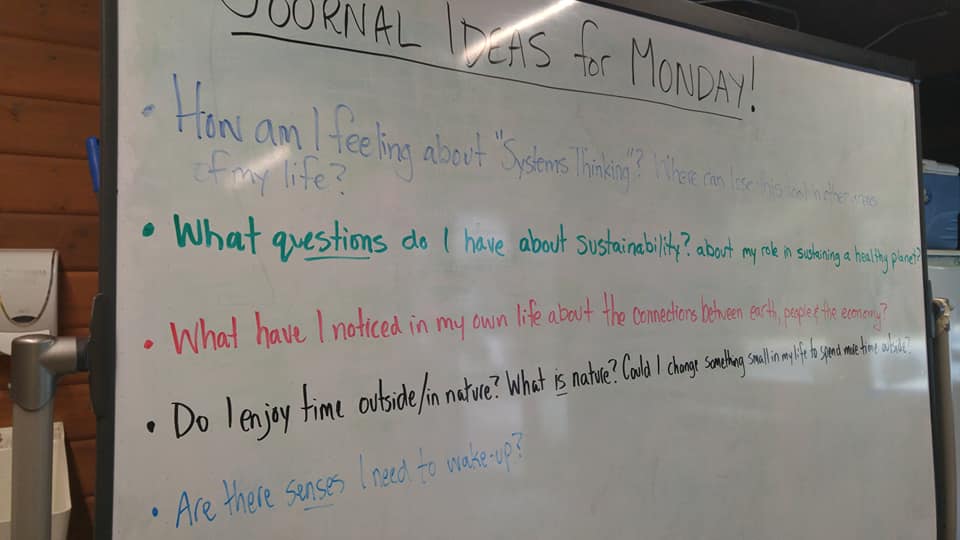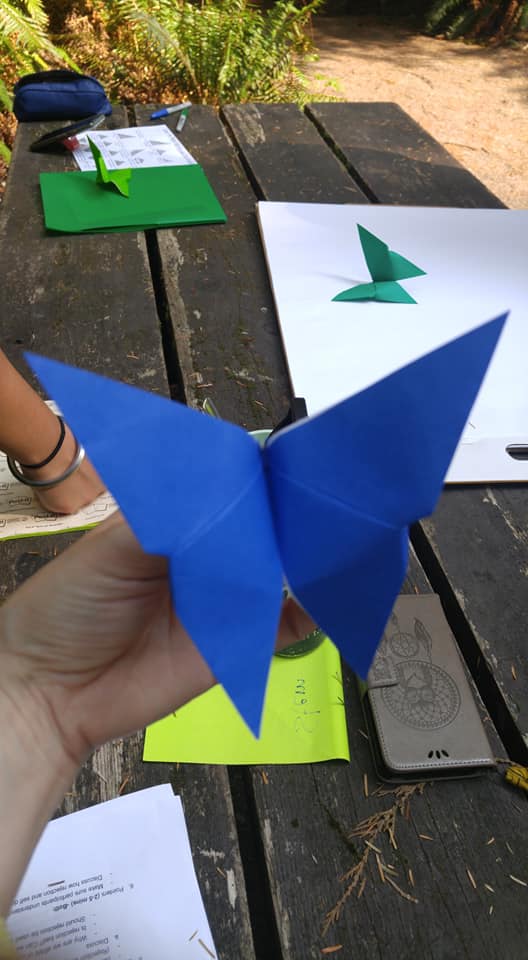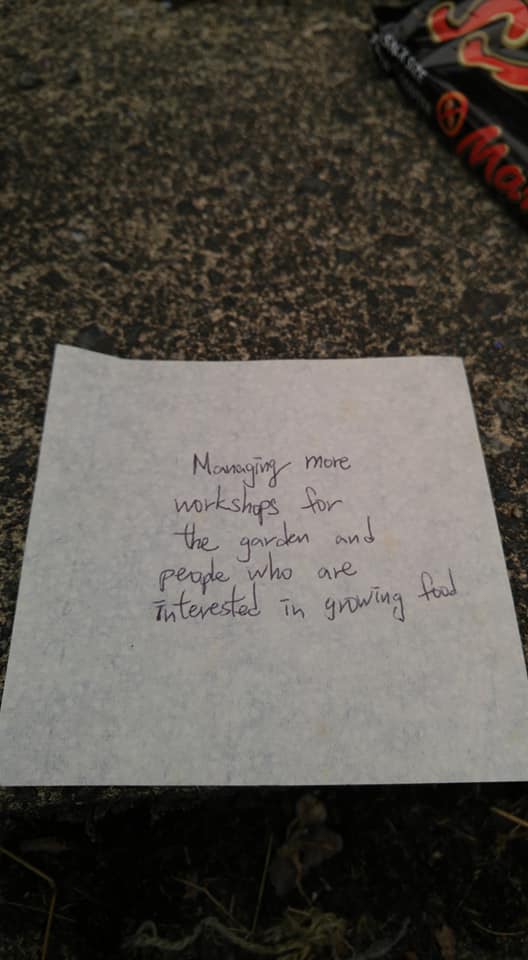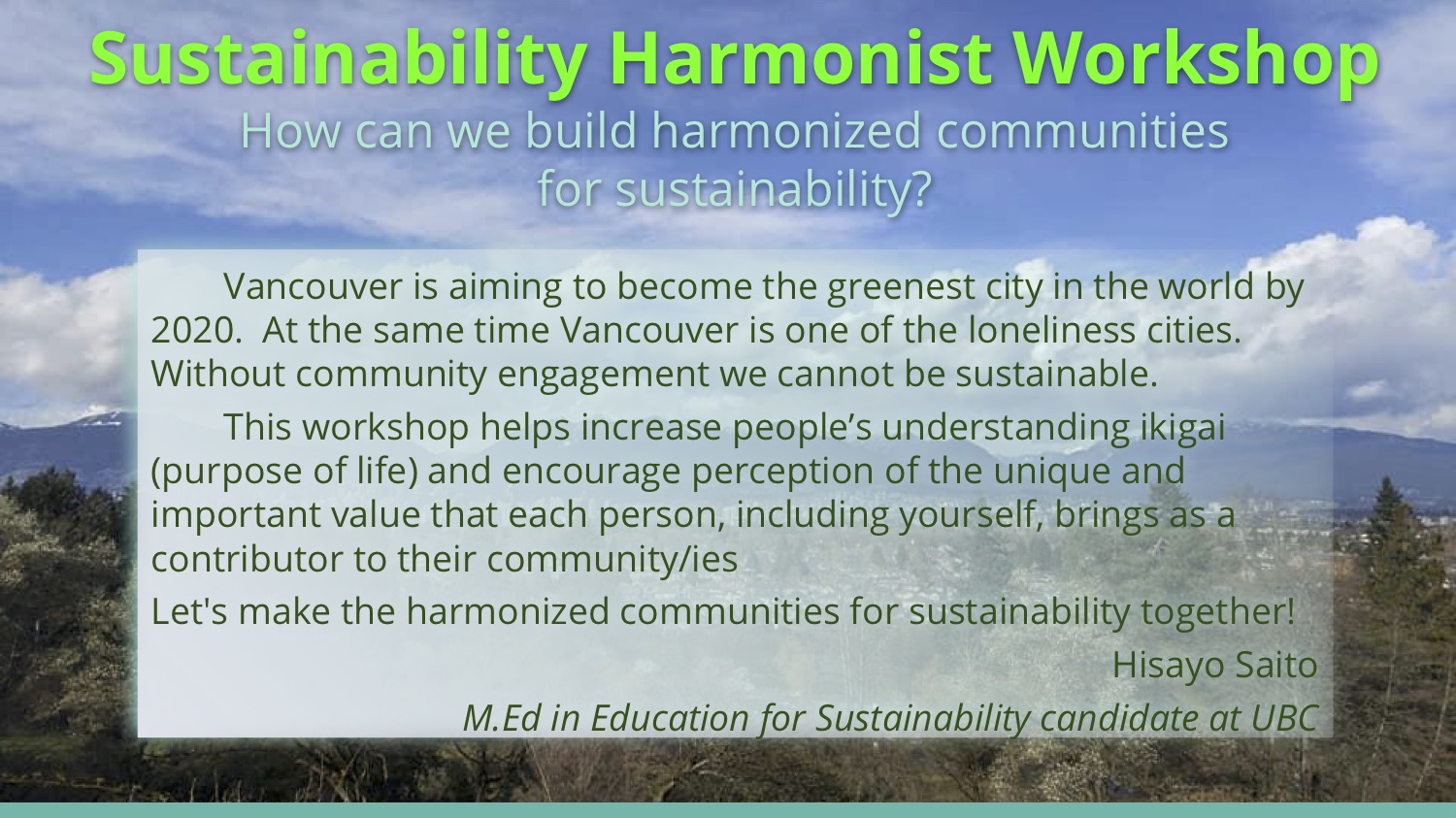The target learners in this post are not exactly adults whom I focus. But it was very interesting and I can use what I observed in the camp in my future workshop. Therefore, I am posting here.
I visited Metro Vancouver Sustainability Toolbox (MVST) – “A YOUTH4ACTION LEADERSHIP FIELD COURSE” camp.
The topics for their journal ideas are similar to the topics that we have learned in our grad program. I am curious what the participants write about the topics. The participants seemed very into sustainability. They have better ideas and visions what they can do in the society. I need to talk to the mentors and facilitators to get more information.

I observed the Alumni (students from previous years – some of them are still in high school and some of them are in university) Workshop sessions of the camp. There were five different sessions. I observed two sessions.
At the “communication” one I saw two activities in the field. The activity #1 was working as a pair. One person explained what the shapes on the paper verbally to the partner who could not see the paper. After time is up, they evaluate each other. The activity #2 was divided to two groups (action group/observing group). The action group got their eyes covered, so they were blind. Then they had to make a square with a rope with the condition. Only the action group were allowed to talk. The observing group could not talk; they were only observing how the action group communicate to make the square. Before the time was up, there was only one chance the observing group could help the action group to shape the square by asking questions to the action group. They could only ask questions, no direct indication to shape the square. After the time was up, the facilitators asked observing group what they saw and felt. Then they evaluated how they communicated and discussed solutions.
When I arrived at the “learning from failure” workshop, they sat around the campfire site, they started writing down their conflict/negative feelings inside of the origami paper. Then they folded the paper to a butterfly. The facilitator told he did let the negative feelings go with origami butterflies when he was younger.
Those topics that are not directly related sustainability in environmental/economical sense. I feel these kinds of skills are needed to everyone, every student in high school and university, even though the workshops were for the leader of the sustainability.
I was impressed how these alumni facilitated the workshop creatively and effectively. I learned a lot from them.





